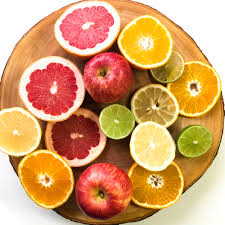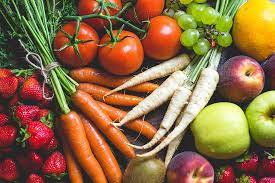10 Foods To Avoid When You Have Loose Motion (Diarrhea)
Loose motion, also known as diarrhea, is a common condition that affects millions of people around the world. It is characterized by frequent bowel movements, watery stools, abdominal pain, and cramps. One of the primary causes of diarrhea is the ingestion of contaminated or irritating foods. Therefore, it is essential to know which foods to avoid when experiencing loose motion.
Foods that we should avoid in loose motion (Diarrhea).
1. Diary Products
Dairy products like milk, cheese, and yogurt are high in lactose, which can be difficult for the body to digest when experiencing loose motion. In many cases, diarrhea causes the body to produce less lactase, an enzyme that helps digest lactose, which can lead to further gastrointestinal problems. Avoiding dairy products during loose motion is essential to reduce the likelihood of worsening diarrhea symptoms.
2. Spicy Foods
Spicy foods are notorious for causing digestive problems, and they can exacerbate loose motion symptoms. Spices like chili powder, black pepper, and cayenne pepper can irritate the intestinal lining and increase bowel movements, leading to more frequent trips to the bathroom. Avoiding spicy foods during loose motion is crucial to prevent further gastrointestinal distress.
3. Fried and Greasy Foods
Fried and greasy foods can also irritate the intestinal lining and exacerbate loose motion symptoms. These foods are high in fat and difficult to digest, which can slow down digestion and cause further discomfort. Avoiding fried and greasy foods during loose motion is crucial to reduce gastrointestinal distress.
4. Processed Foods
Processed foods like chips, cookies, and candy are often high in sugar and fat, making them difficult to digest. These foods can also contain additives, preservatives, and chemicals that can irritate the intestinal lining and exacerbate loose motion symptoms. Avoiding processed foods during loose motion is crucial to reduce gastrointestinal distress.
5. Fiber-rich Foods
Fiber is essential for good digestive health, but consuming fiber-rich foods during loose motion can worsen symptoms. Fiber-rich foods like beans, lentils, fruits, and vegetables can be difficult to digest and can increase bowel movements. It is essential to avoid fiber-rich foods during loose motion to reduce gastrointestinal distress.
6. Alcohol and Caffeine
Alcohol and caffeine can be dehydrating, which can worsen diarrhea symptoms. These beverages can also irritate the intestinal lining and increase bowel movements, leading to more frequent trips to the bathroom. Avoiding alcohol and caffeine during loose motion is crucial to prevent further gastrointestinal distress.
7. Acidic Foods
8. Raw Vegetables and Fruits
Raw vegetables and fruits can be difficult to digest and can increase bowel movements, leading to further gastrointestinal distress. These foods can also contain bacteria that can worsen diarrhea symptoms. It is essential to avoid raw vegetables and fruits during loose motion to reduce gastrointestinal distress.
9. Sweetened Beverages
Sweetened beverages like soda, fruit juice, and sports drinks can contain high amounts of sugar, which can exacerbate diarrhea symptoms. These beverages can also be dehydrating and can worsen diarrhea symptoms. Avoiding sweetened beverages during loose motion is crucial to reduce gastrointestinal distress.
10. High-fat Meats
High-fat meats like bacon, sausage, and ground beef can be difficult to digest and can increase bowel movements, leading to further gastrointestinal distress. These foods are also high in fat, which can slow down digestion and cause further discomfort. Avoiding high-fat meats during loose motion is crucial to reduce gastrointestinal distress.
In conclusion, loose motion is a common gastrointestinal problem that can be caused by a variety of factors. Identifying and avoiding foods that can exacerbate diarrhea symptoms is crucial to managing the condition and promoting healing. If you are experiencing diarrhea, it is important to stay hydrated, rest, and seek medical attention if symptoms persist or worsen. With the proper care and treatment, most cases of diarrhea can be resolved within a few days.











Comments
Post a Comment